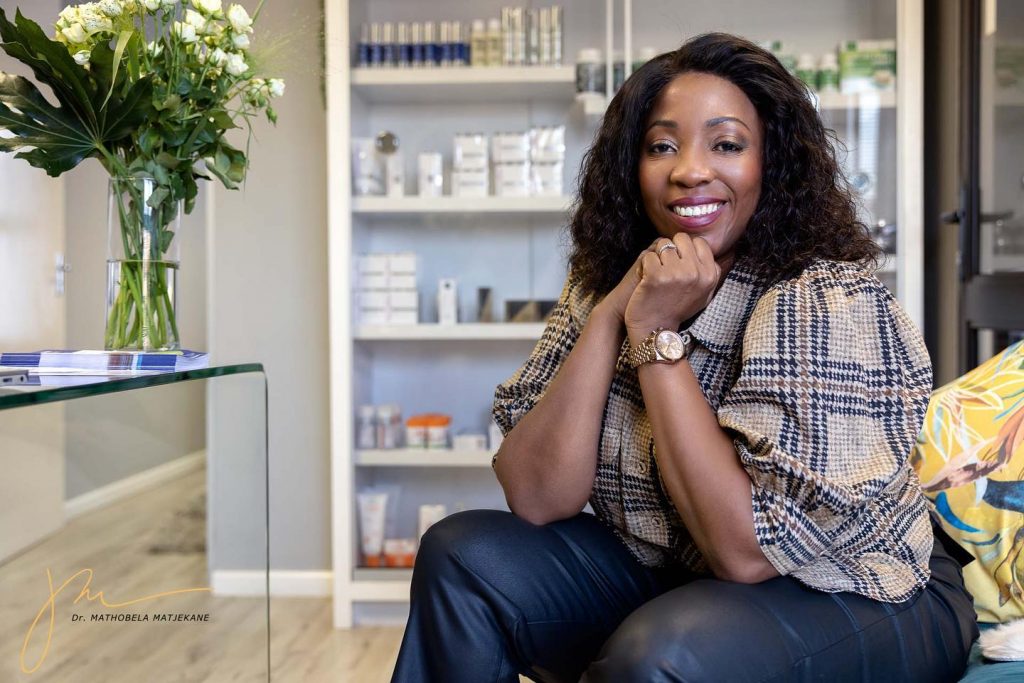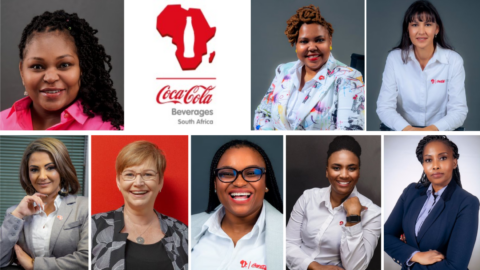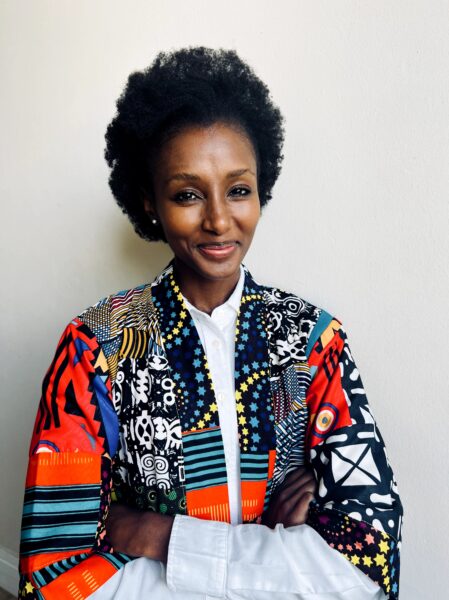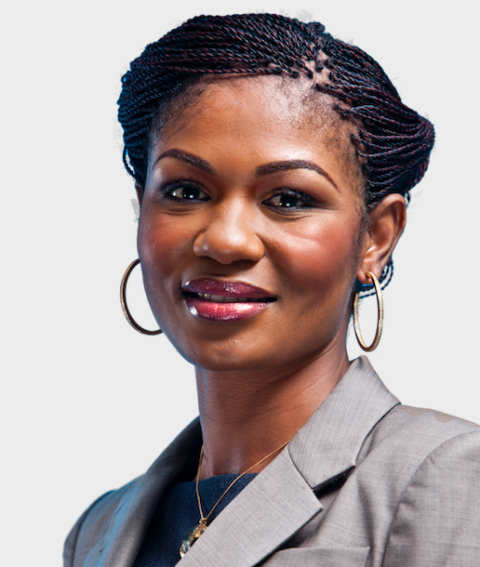Celebrating Women
Making Her Mark In Medicine
Dr Mathobela Matjekane is the founder and chief executive of healthcare facility CliniMed which serves the communities of Khayelitsha, Mandalay and Parkview. CliniMed provides primary and dental healthcare, wellness programmes, optometry and some aesthetic treatments. Since the coronavirus outbreak, the medical facility and Dr Mathekane have been going above and beyond to assist the communities in which it operates.
Challenges and motivation
“I am originally from Tzaneen in Limpopo and come from a disadvantaged background. I was the first in our long family line to graduate from University, funding this education and the setting up of my subsequent medical practice presented enormous challenges. After I qualified from the University of Cape Town, I worked in community day hospitals, while assisting my siblings to finish university – as was expected of the older sibling in the family.
“Another of the challenges I faced was learning isiXhosa so I could better relate to my patients and have a decent conversation with them. I believe I conquered it as I can now speak the language fluently with proper understanding, although I do struggle to write in isiXhosa.
“Setting up my medical practice required borrowing money from the bank and I made very sure to pay my loans on time, even if it meant that for several years I had no income. Running my own business without huge financial backup and no mentors to guide me through the journey required great strength. But, I believe it’s all about how much you want to achieve great things; this motivates you to push daily to achieve your goals. My biggest push was doing personal research regularly into concepts I wanted to implement. Other struggles included optimising the cost of the service structure and still being able to provide top quality service,” she says.
Founding CliniMed to bridge a gap
CliniMed was founded based on the need to bridge the gap between high-cost private medical access and public medical access, explains Matjekane. “I believe good health and healthcare is a basic necessity. Without health, you cannot have a well-balanced and fulfilled life. When people are healthy they are empowered to perform at their maximum capacity. When I worked in the community hospitals, I was exposed to the inadequacy and inefficiency in the most basic healthcare services and, as a healthcare practitioner, I decided to look into establishing a healthcare facility that would offer a basic level of care. Our operation focuses on putting our patients at the centre of the care that we are offering. Our services encompass simple offerings like family planning, chronic disease management, regular medical check-ups and all acute disease management. We also push more preventative measures than curative ones and encourage our patients to do regular health checks such as pap smears and tests for diabetes and hypertension.”
Impact of COVID-19 and CliniMed’s response
As a frontline health worker during COVID-19, Matjekane has firsthand experience of its devastating impact.
“As I reflect upon our ‘new normal’ some 18 months since we were hit by this terrifying COVID-19 pandemic, I am reminded that we’ve had no time to process its impact or to grieve, we scarcely have time to breathe. It has been havoc ever since the outbreak, which has affected all our lives in every aspect – from our livelihoods, careers and businesses to relationships we have with our families and loved ones.
“I will always remember the crippling fear and uncertainty that overwhelmed me on 5 March 2020 – the day the then minister of health, Dr Zweli Mkhize, announced that the first case of COVID-19 had been detected in South Africa. At the time, we had no idea of what was to come even though we had followed mainstream media to learn how the coronavirus was manifesting in and affecting other countries.
“Three weeks later, the country went into lockdown. The lockdown delivered its own blows, as we were trying to process the increasing number of infections and treat a new virus with no guide as to the best way to handle it and no cure available. The only thing we could do was advise patients to strengthen their immune systems.
“Outside the medical field, the country’s economy was under threat. We saw longstanding businesses shut down permanently, people were retrenched and those who thought they were safe lost everything. Lockdown forced us to look carefully and deeply, through microscopic lenses, at South Africa’s realities: inequality; lack of service delivery, especially in rural areas; a staggering unemployment rate both before and during the pandemic; state corruption and looting; and under-resourced medical facilities, among many other issues.
“Once again, the most affected were the previously disadvantaged, the informal economy and small businesses that have been said to be the lifeline of South Africa’s economy.
“At CliniMed’s facilities in the Western Cape, we observed people not adhering to COVID-19 safety regulations. And, while we could have easily thought that they were being defiant, we quickly learned that our government was not speaking to the people in their languages and in a way that they could understand. We decided to decode the COVID-19 medical jargon and simplify the messaging for a broader understanding. We used our social media platforms and used our databases to disseminate the information,” Matjekane concludes.






 Sign-up and receive the Business Media MAGS newsletter OR SA Mining newsletter straight to your inbox.
Sign-up and receive the Business Media MAGS newsletter OR SA Mining newsletter straight to your inbox.